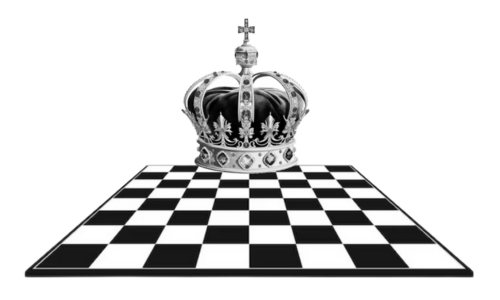11/21/2019 – Success is quite relative. For many chess players winning the Olympiad three times, World Teams once, becoming the national champion twice and reaching the finals of the FIDE World Cup would surely represent a successful chess career. Yet, in the case of Vladimir Akopian this was not enough. This is because Akopian was considered by many to be one of the greatest talents that the chess world had ever seen. Why didn't this GM from Armenia fulfill his promise? Why didn't he become the absolute best in the world. What is his life story? IM Sagar Shah sat down for a candid chat with the Armenian grandmaster.

Armenian Grandmaster Vladimir Akopian is a man of immense chess talent. Born in Baku (like Kasparov) in 1971, the first few years of his chess career convinced everyone that he was special. He won the World under-16 championships, then under-18 and also under-20. In 1995, playing for club "Yerevan", he became European Club Cup champion. Two-time champion of Armenia, four-time winner of Russian Team Championships. He also was part of the Armenian team that won the gold medal at three Olympiads — Turin 2006, Dresden 2008 and Istanbul 2012. His team won the gold at the World Team Championships in 2011. He very nearly became the FIDE World Champion in 1999 when he reached the finals but lost to Alexander Khalifman.

By 1980, when I was eight years old, I had become a first category player. In the Soviet Union, back then, there were four categories. For an eight-year-old, it was some sort of a record to become a first category player. This already showed that I had some talent.

When I was 14, we moved to Yerevan, Armenia. My father had got a job there. Exactly around this time, I had qualified for the Under-16 World Championship in 1986 in Argentina, which I eventually won. This was the first time I had won a world championship. Later, I went on to win the world championship Under-18 in 1989 and Under-20 in 1991.


In those days, qualifying from the Soviet Union in the Under-16 category was considered to be much more difficult than winning the world championship itself. So, the player who qualified from the Soviet Union was considered the clear favourite to win the title. If you don’t take the first place, it would usually be considered unsuccessful in the Soviet Union. So, all players like Dreev, Bareev etc., would all go through these qualifiers and become the world champion. This was also the case with me.


Unfortunately, in ’91, he died rather young at 53 years of age. The last thing we did together was winning the 1991 World Under-20 championship in Mamaia, Romania. This was in August of 1991 and in October, he passed away. He was not living in Armenia at the time. The Soviet Union was falling apart and he had moved back to his native city of Kaliningrad.



I did exactly as he suggested. I started off well with 3½/4 and then I made some draws with all of the strong title contenders. In this time, leaders were changing while I was always half-a-point behind. Towards the end, I won several games and by the penultimate round, I suddenly saw that I was leading by a full point. It was an 11-round tournament and I only needed a draw in the final round. I had the white pieces and it was easy to secure a draw and, with it, the World Under-16 title. In the tournament, I won six games and drew five. Botvinnik’s advice worked wonders for me.
I mention this particular tournament (under-16 World Championship) because this was my first major success. I went on to win in the Under-18 and Under-20 categories as well and they are pleasant memories, but the first success is always something different. And even though I was considered a favourite to win this Under-16 championship, there is always a big difference in being a favourite and winning the championship.

To compare the strengths of chess players, however, is very difficult. I can only compare chess character, perhaps. For example, I was normally an aggressive player. Now, there can be some other players who might be equally talented but not so aggressive. It’s just about approach. It didn’t matter to me whether I was playing white or black, I tried to play to win anyway. Normally if you are black, you are satisfied because a draw is always good with black. It was never like this for me, though. Lately, I am not playing much chess but if I play I fight. Maybe it’s because of how I was taught. I was taught that chess is a fight and you should play until the end.



It was something very unusual for Armenian chess players. I was living in Armenia, I was playing for the Armenian chess team in Olympiads and everything, and somehow we were just spending good time together. We would spend time talking, playing cards, playing blitz, going for walks. Sometimes, we would also look at an interesting position for an hour or so but it was never anything close to systematic practice.


Of course, not all of the ideas that were discovered were played during the match. Leko played some of the ideas in his games after the match. In fact, Peter won a very strong tournament in Wijk Aan Zee immediately after this match and we were very happy. He used a lot of the ideas we had discovered for the match at this tournament. Even I used some ideas, Vlad used some. Back at that time, we felt that Peter had prepared very well.
Thanks to computers, seemingly lost positions have become playable. I think computers help you broaden your horizon as chess players. Nowadays, I have seen that the computer just destroys everything. Everything is wrong. And it’s not wrong because I am missing something obvious but because I am missing some very complicated tactics. It means that the whole concept of the game has changed. You might have thought for a long time that a certain position was winning for one side but it turns out it is equal or even lost!
It’s more difficult now, perhaps, because you have to work much harder. But the computers, I think, just show that the game is much more complicated and rich than what we had imagined.

In the tournament, I had reached the finals without losing a single game. I played 19 games without a loss. I was indeed in a very good form. But even if I had won that championship, I would never have considered myself to be a world champion.

In these four tournaments which cumulatively composes 42 games, I did not lose a single one. I had some very difficult positions in some of the games. But I am very happy I never lost. In terms of results, I scored +6 in Turin, +5 in Dresden, +5 in Istanbul and +3 in Ningbo.
Part II of this interview will soon follow. It deals with how and why Armenia does well at Team competitions, Akopian's opinion and duels with world class players like Aronian, Kramnik, Kasparov and other greats, how did it feel when Kasparov called him and a few other players tourists, meetings with greats like Petrosian, Fischer, Spassky and more.


I would still say it is difficult to tell how we won, though, because there were so many strong teams. We had decent players in the team, not top players — except maybe Aronian — but still strong players. And all of us scored decently well. So, perhaps, as individual players, we weren’t the strongest but as a team we were very tough. But again, it was only during those years that the team did so well. It wasn’t the case before the Turin Olympiad or after the Istanbul Olympiad.


But when you consider all things together — not only talent but the willingness to work hard, to sacrifice everything else, to be psychologically strong — not many have it in them to make it to the very top. Everyone, of course, has some small weaknesses but there are many factors that need to be in place for a player to reach the world’s elite.
Also, from his point of view, he was right. He was always a very tough worker. And maybe seeing, for example, me — who wasn’t doing anything much in chess — coming and reaching the finals, he thought that it was not logical. Kasparov referred to us as tourists not in the sense that we completely cannot play chess but the sense that we didn’t work so hard on chess. And when you don’t work on chess, automatically, from his point of view, you’re tourists; you are not professional chess players. This was his approach. Of course, one could argue if someone should say such things or not but this was what he meant.





Also, with the coaching and everything it was getting difficult. For some people, it is a need to keep playing in tournaments. For me, I am very happy playing one or two tournaments per year.



There are some other books as well. Fischer’s My sixty memorable games is very interesting and so is Larsen’s book. Also, there are some books of these great chess players that I respect a lot. I very much like Stein. He was a great chess player who was extremely talented but died very young. And of course, Boris Vasilievich Spassky, he has played some incredible games. But he never wrote a book about his games. I also like the games of Alekhine very much. I would read all of the books that contained his games and analyze them myself.

In our times, I would not play like this. If someone came and told me about an idea and show me some possibilities, I would play it over the board and do the rest by myself. The ideas would usually not be more than two or three moves. But now, if you have an idea, it must be polished. Everything should be several moves deep and must encompass all tactics. I don’t want to say it is good or bad. It is just completely different. But still, the game is interesting. I don’t know whether or not it will be finished in a few years but for me it is already half finished. From one side, it goes extremely deep into the opening. From the other, there are endgame tablebases with seven pieces already.
I remember myself playing in the days without computers. I was one of those who was very late to adapt to the computers.

How to get a unique chess experience
with Vladimir Akopian?
Vladimir gives private lessons concentrating on middlegame, endgame, calculation, positional play, etc. Carefully selected positions on tactics and strategy together with his explanations will significantly improve your level of play.
Sign up for a consultation with Vladimir Akopian Vladimir gives private lessons concentrating on middlegame, endgame, calculation, positional play, etc. All Rights Reserved © 2023 |

